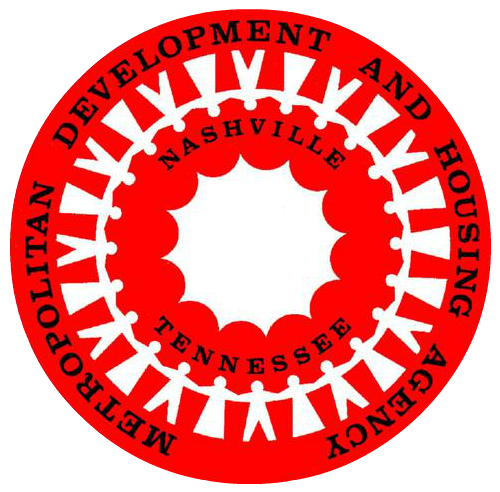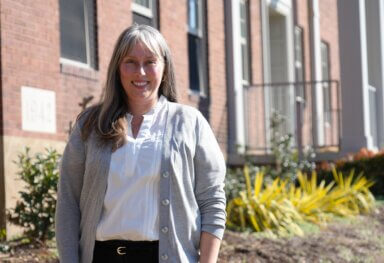The Metropolitan Development and Housing Agency (MDHA) has released its results from Nashville’s 2019 Point-in-Time (PIT) Count, an annual count of sheltered and unsheltered homeless persons. The total number of persons experiencing literal homelessness counted on the night of the count was 1,986, a 14 percent decrease from 2018. Although a PIT Count is important to establish some dimension of the problem of homelessness, the method is not without its limitations, and should be considered as one among a variety of sources of data needed to tell the whole story of homelessness.
“A decrease of this size is something to be proud of,” said Mayor David Briley. “The Homelessness Planning Council and service providers across our community are clearly moving the needle on ending homelessness. While this is a promising trend, we know there is more we can do to make sure everyone in Nashville has access to housing. This is why I recently announced Under One Roof 2029. I’m thankful for all those who work tirelessly every day to support the most vulnerable people in our city.”
More than 100 volunteers from 23 different agencies and universities took part in this year’s count. The temperature dropped to around 35 degrees during the count, which was held on the evening of January 22 and the early morning hours of January 23. Room in the Inn and the Nashville Rescue Mission operated their shelter programs and counted people staying with them during that night. No Metro overflow shelters were opened on the night of the count, and the community’s cold weather plan was not activated.
“As a Veteran, I’m grateful we saw a four percent decrease in the number of homeless Veterans during the 2019 count,” said MDHA Executive Director Jim Harbison. “The information we are able to gather on a single night allows us to better direct our efforts to reduce homelessness in our city.”
In order to access its Continuum of Care homeless funding, the U.S. Department of Housing and Urban Development (HUD) requires that communities across the country conduct an annual Point-In-Time count of persons experiencing homelessness that are unsheltered, as well as sleeping in emergency shelter or transitional housing, on a single night during the last 10 days of January. The count numbers will be reported to HUD in late April.
These numbers represent merely a point-in-time snapshot, and do not reflect the extent of the problem over an entire year. In order to support an effective Housing Crisis Resolution System that meets the needs of people experiencing any type of housing crisis, we must utilize a variety of data sources. To that end, an annualized count that accounts for all types of homelessness over the course of a year will be invaluable to painting a more complete picture of the state of homelessness in Nashville-Davidson County.
“We are working hard to improve the functionality of our community’s Homeless Management Information System, and we are asking for additional resources to do that,” said Judith Tackett, director of the Homeless Impact Division of Metro Social Services. “Not only will an effective HMIS allow us to produce and evaluate annual data but it will also improve the efficiency in which people can access services in our community.”
The Point-in-Time count did not capture individuals and families who are defined as homeless under federal statutes other than HUD. For example, the US Department of Education employs a broader definition of homelessness that includes children in families who are doubled up (the bottom of the pyramid, in the following graphic), or living in area motels without a voucher due to economic hardship or housing loss. This graphic, adapted from the 2011 Portland/Multnomah County Oregon Point-in-Time Report, illustrates the populations that are and are not included in the PIT count. As indicated, the count does not include those who meet the broadest definition of homelessness.
Please click here for more information.
Key Tasks – Achievements and the Work Ahead
- Increasing access to housing
With the tight housing market and an ever increasing need for low-income affordable housing, prevention and access to housing are issues that need to be addressed to truly reach a significant decrease in homelessness. Yet, we also need to acknowledge the work that is being done while we focus on increasing resources and efforts.
With the support of city funding, MDHA implemented a new incentive program to encourage more Davidson County owners/landlords to rent their units to homeless Veterans who have been determined eligible for rental assistance under the MDHA Veterans Affairs Supportive Housing (VASH) program. Funds from the Metropolitan Government of Nashville and Davidson County offer participating landlords a $1,000 lease-signing bonus and payment of unpaid rent or damages after a VASH participant moves from a unit.
Staff from an array of nonprofit agencies in the city serve as Housing Navigators & meet weekly to develop a housing plan for the most vulnerable persons/households experiencing homelessness, help collect documentation needed for housing placement, and connect them to mainstream benefits/services as needed. The work of the Housing Navigators helps to build a system that ensures homelessness is a rare, brief, and one-time occurrence. MDHA commits HUD Community Development Block Grant (CDBG) funds to assist people experiencing homelessness with utility deposits and first-month’s rent.
Since 2013, the Nashville community has increased collaboration among more than 30 partners and, by leveraging existing resources, has continued to house people experiencing literal homelessness.
- Improving Data Collection
Over the past year, the Continuum of Care community has paid a lot of attention to improving data collection with a specific focus on improving the local Homeless Management Information System (HMIS). As part of that, the Continuum of Care designated the Homeless Impact Division of Metro Social Services as the new HMIS Lead, created an HMIS Oversight Committee that is working on improved data coordination among providers, and formed an ad hoc committee to develop a plan that outlines the needed resources for systems improvement starting with data collection.
- Improving connections to services
Metro Government is working with private partners to increase coordination in addressing homelessness in the downtown area that will integrate a social services model that is a departure from an enforcement-only approach and adopts a partnership approach.
Access to services is often hindered by a lack of transportation. To address this barrier, the Metro Homeless Impact Division has partnered with WeGo Public Transit (formerly MTA) to provide annual bus passes at no cost to people who are at risk of or are experiencing chronic homelessness. To be eligible, bus pass recipients will have to actively work with a community housing navigator, who work at nonprofit partner organizations.
Staff at the Metro Homeless Impact Division is working with community partners to strengthen a Coordinated Entry (CE) process that standardizes the way individuals and families at risk of homelessness or experiencing homelessness are assessed for and referred to the housing and services that they need for housing stability. An effective CE prioritizes assistance based on vulnerability and severity of service needs, as well as length of homelessness, to ensure that people who need assistance the most can receive it in a timely manner. Coordinated entry processes also provide information about service needs and gaps to help communities plan their assistance and identify needed resources.
Under the leadership of Metro Homeless Impact Division and Oasis Center Nashville was awarded a $3.5 million Youth Homelessness Demonstration Program grant to help prevent and end homelessness for unaccompanied youth and young adults under the age of 25.
Here’s How You Can Help:
Volunteer with a community partner who serves people experiencing homelessness. To find information about homeless services providers, please visit www.wttin.org.
Donate items such as water, sunscreens, new underwear, socks, non-perishable food items, to help people experiencing homelessness. There is a great need for water during summer months. Contact the Metro outreach team by emailing troy.jenkins@nashville.gov or sally.besuden@nashville.gov to find out where to drop off donations.
Consider a financial contribution to pay for move-in costs including first month rent, security and utility deposits. How’s Nashville assists people with up to $1,000 in move-in costs per household and there is an urgent need to replenish the community’s fund. Donations are tax-deductible. For more information, email judith.tackett@nashville.gov.
MDHA needs landlords willing to accept Section 8 Vouchers. This program provides low-income individuals and families an opportunity to find affordable housing in the private market. Currently, there are 841 landlords who accept the more than 7,000 vouchers administered by MDHA, but the number of such landlords has been declining. If you are a landlord and would like more information about the program, please email section8@nashville-mdha.org.
Join a listserv of more than 450 interested agencies and individuals who want to end homelessness by emailing stolmie@nashville-mdha.org. Attend a meeting of the Nashville Coalition for the Homeless & the Continuum of Care, from 9 to 11 a.m. on the third Thursday of each month at the Nashville Rescue Mission.



